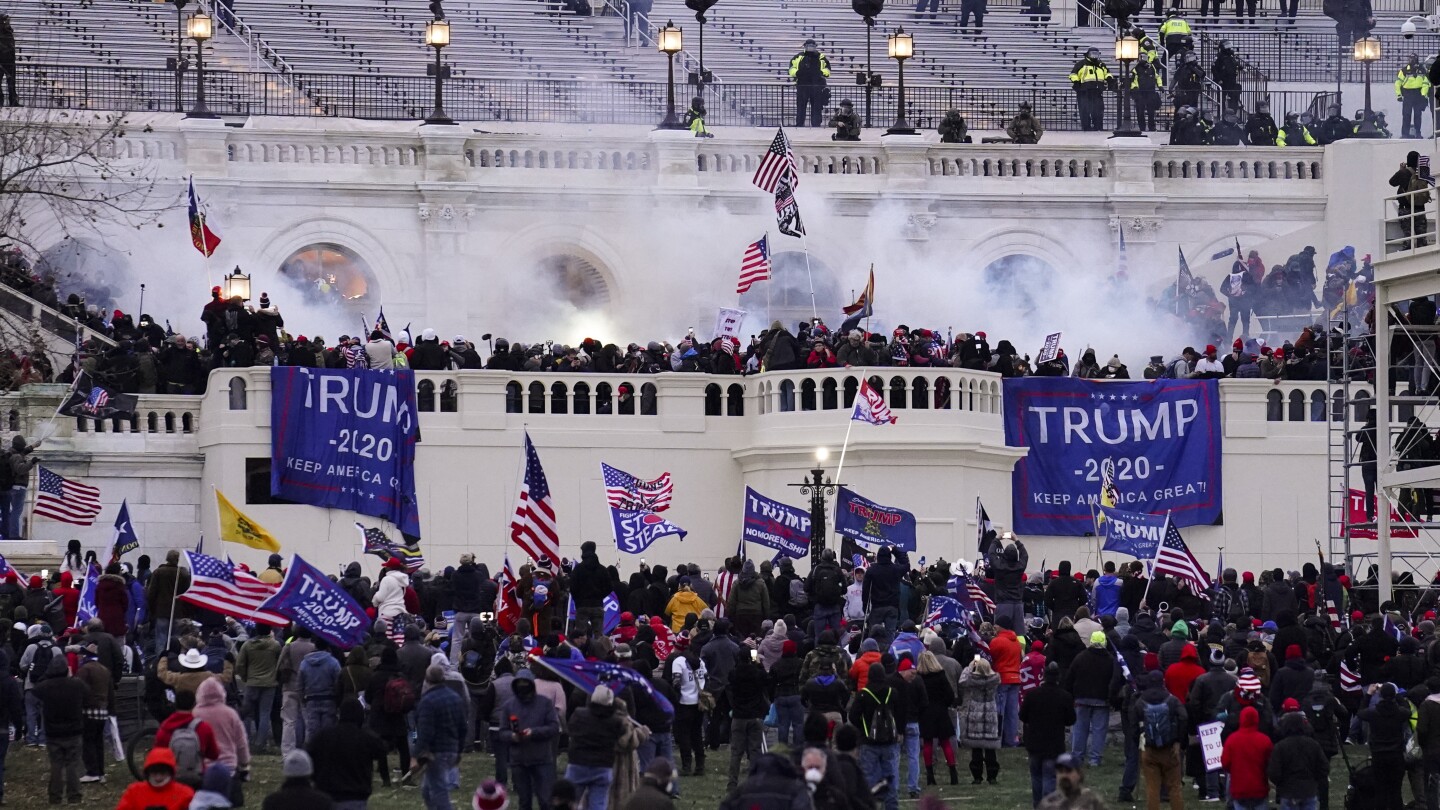Liberal groups have filed lawsuits in Colorado, Minnesota and other states to bar Trump from the ballot, citing a rarely used constitutional prohibition against holding office for those who swore an oath to uphold the Constitution but then “engaged in insurrection” against it. The two-sentence clause in the 14th Amendment has been used only a handful of times since the years after the Civil War.
Because of that, there’s almost no case law defining its terms, including what would constitute an “insurrection.” While people have argued about whether to call Jan. 6 an insurrection ever since the days following the attack, the debate in court this week has been different — whether those who ratified the amendment in 1868 would call it one.
“There’s this very public fight, in all these colloquial terms, about whether it’s an insurrection, but it really comes down to brass tacks defining what this constitutional term means,” said Derek Muller, a Notre Dame law professor who’s followed the litigation closely.
NAL but here’s my own small dive into the “what does insurrection mean” argument …
The 12th Amendment clearly states how the President is chosen, and Section 3 of the 14th Amendment states that no one may hold office if they “engaged in insurrection or rebellion against” the Constitution.
It’s the “or” between insurrection and rebellion that’s important here as it means the definition of insurrection is not vital to charges being laid … the word “rebellion” is easier to define and Jan. 6 was exactly that – a rebellion against the completion of the 12th Amendment where the legally chosen President would be sworn into office.
deleted by creator
Thanks. :)
As someone who watched the entire two hour debate yesterday I’ll just say don’t hold your breath hoping that anything happens.
Had to watch one lawyer explain the law to a bunch of judges that clearly didn’t understand it, culminating with the judges agreeing they could charge trump, but shifting the argument to whether or not they SHOULD because it would set a precedent…
…and the second lawyer agreeing there is no legal reason they can’t charge trump, but arguing they shouldn’t because no one else has done it before, so why should they start now? Basically trying to get them to ignore the letter of the law and agree with themselves.
At one point lawyer 1 had to explain how states rights works to the judges, and convince them it’s okay for states to make these decisions, because we have checks and balances set up in appeals and processes.
The judges seem terrified of being the ones to decide what’s right, thinking it will open a Pandora’s box of chaos, suddenly allowing political parties to disqualify each others candidates before they even hit the ballot. Which is a silly argument, as they can already do that now if the person doesn’t qualify, so they’re literally only asking the judges to do their fucking jobs.
Politics is so much fun!
That argument pisses me off soooo much.
Ya’all know what else is totally unprecedented? A sitting president not lawfully handing over power to the president-elect in a peaceful manner,
Yeah. These things charges are unprecedented- because the crime involved is un-fucking-precedented.
deleted by creator
The fear of marking a political figure as a criminal officially, regardless of any crime they actually committed, is a pretty daunting specter over any political system.
This question is literally the sticking point on which Caesar decided to destroy the Roman Republic.
It’s probably the last great question that’s yet to be satisfyingly answered, because “just lock up the ones who break the law” will always be met with “what’s stopping their allies from making new laws and charging their enemies with breaking those?”, and “how would you even be able to enforce that?”
IMO it’s a question that can only be answered by turning to a form of democracy that severely cuts down the powers of any pinpoint individual leader, that is to say, severely cuts down how hard it is to avoid the importance of that leader becoming a shield of “you’re just prosecuting him for political gain!”
Basically, America needs to make the jump to parliamentary democracy, and a radical form of it too if Bibi’s run of things is any indication.
If someone challenged Biden’s ability to run again, yeah, courts could pretty easily ask “well where is the evidence of rebellion or insurrection?”
Just because a court allows it in an instance does NOT make it a free for all.
“Whether the people who ratified it would call it one.”
You could answer that question just by observing how many confederate flags the traitors were waving.
I guess it could eventually affect other states, but I think the only state currently considering leaving Trump off the ballot where Trump has even a remote chance of winning would be Michigan. Colorado and Minnesota are out of reach for him anyway.




